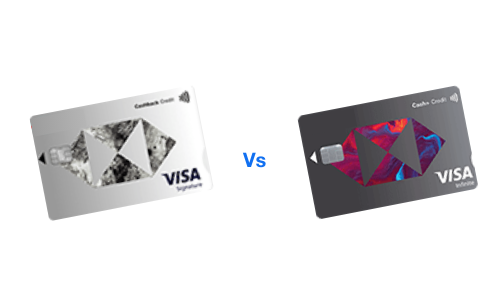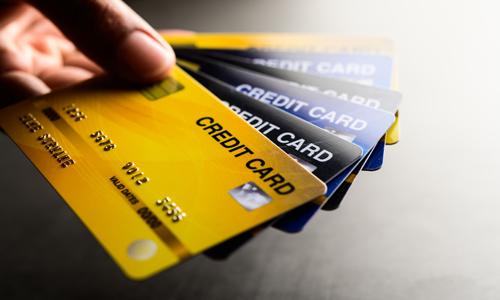Do You Know How Your Credit Card Charges You

In today's fast-paced world, credit cards have become indispensable financial instruments, offering unparalleled convenience and flexibility. However, beneath the surface of these plastic cards lie a labyrinth of charges and fees that can significantly impact your financial well-being. Understanding how your credit card charges you is crucial for responsible financial management.
This comprehensive guide will demystify the intricate fee structures associated with credit cards for you. We will explore the common charges that cardholders often encounter, such as annual fees, interest rates, late payment penalties, and foreign transaction fees. Moreover, we'll cover lesser-known fees like cash advance charges and balance transfer fees, shedding light on the potential pitfalls of each.
Number of Charges on Your Credit Card
When you buy a credit card, the joining fee will be your initial expense. It is a one-time charge applied when you receive the card, with the amount varying as per the credit card company and the specific card that you select.
After this, you'll encounter the annual fee, which is a recurring charge billed each year for the services offered by the credit card company.
Besides these two, several other charges are levied on credit cards.
Here is a breakdown of the charges that might be applicable to your credit card -
Annual Charge -
This is the amount that you are required to pay on an annual basis for your credit card. The specific annual fee varies depending on the type of card you possess.
Cards with more extensive benefits typically have higher fees. While we often tend to overlook this charge because it is billed once a year, it can significantly impact your overall statement.
Some credit cards may advertise as having no annual fee, but it's crucial to note that this offer is typically limited to a short promotional period or only applies for the first year. If you wish to avoid this fee, you will be required to look for credit cards with zero annual fees for a lifetime.
Here are some strategies to manage the annual fee:
- Apply for cards that waive the annual fee for the card's lifetime.
- Be aware of the annual fee associated with the card and assess if you can comfortably afford it before acquiring the card.
Cash-Related Charges -
Several people overlook the fact that credit cards are not meant for cash withdrawals, yet they often use them for this purpose due to convenience. However, withdrawing cash with your credit card can have serious financial repercussions.
Two charges are associated with cash withdrawals: Cash Advance Fees, which are typically 2.5-3% of the withdrawal amount, and Cash Advance Interest, which is also around 3% and accrues from the day of withdrawal.
For emergency cash requirements, opting for a personal loan would usually be a more cost-effective choice, as their interest rates tend to be lower than cash advance interest rates.
The primary tip here to avoid these charges is to refrain from withdrawing cash using credit cards unless it is an urgent necessity.
Foreign Transaction Costs -
Every credit card comes with foreign transaction fees that apply when you use your card internationally. While these fees may seem minor at first glance, they can add up significantly and impact your overall bill. Foreign transaction fees typically range from 1.5% to 4%, and there may also be flat conversion fees, usually around AED 20-40.
Tips for managing these charges -
- If you travel frequently, consider using a travel credit card designed for international usage.
- Go for international prepaid travel cards when travelling abroad.
- Avoid using your credit card for international cash withdrawals. You can use debit cards or prepaid cards instead.
Over-Limit Fees -
All credit cards have a set credit limit — exceeding this limit results in over-limit charges and can negatively affect your credit Score. This can have repercussions in the future when seeking credit, as banks place significant importance on your credit rating before lending money.
However, if you believe your credit limit is insufficient, you can request a credit limit increase from the bank. This can also positively impact your credit rating, indicating greater creditworthiness. Nonetheless, it's essential to raise your credit limit only if you are comfortable managing that higher amount.
Tips for managing your credit limit -
- Keep a close eye on your spending to avoid exceeding your credit limit.
- Increase your credit limit if necessary but avoid surpassing your established limit.
- Always pay off your balance promptly to avoid high interest charges.
Late Payment Fees -
Credit cards typically have a specified due date for bill payments. Cardholders are required to make either the full payment or the minimum payment before this due date. Failing to make any payment or paying less than the minimum amount after the due date results in late payment fees.
Credit Shield -
Credit cards often include a feature known as Credit Shield, which serves as insurance coverage for the outstanding balance on the card in case the cardholder faces unforeseen circumstances such as job loss or accidents.
Some banks in the UAE charge a nominal fee for this feature, while others offer it for free or make it an optional add-on.
Understanding APR
Credit card interest is computed using the Annual Percentage Rate (APR), which refers to the interest rate expressed on a yearly basis. Essentially, APR provides a yearly perspective of your interest rate. When you're choosing between credit cards, APR serves as a useful tool for comparing how costly a transaction will be on each card.
A lower APR is more favorable for you since it means you'll pay less for the privilege of using a credit card to make purchases. However, keep in mind that APRs can differ not only between different credit cards but also from person to person. This is because these rates are influenced by factors like your credit score.
To better understand your own APR, you might find it helpful to change your annual rate into a Daily Percentage Rate (DPR) or what is often referred to as the periodic interest rate.
How is Credit Card Interest Rate Calculated?
While UAE banks compute the interest on the outstanding balance of credit cards on a daily basis, they present the interest rates to customers on a monthly basis, typically as a monthly percentage rate (MPR). This rate generally ranges from 2.5% to 3%, which equates to an annual rate (APR) in the range of 30% to 36%.
To determine your daily interest rate, you can calculate it by dividing your APR by 365 (although some UAE banks may use 360). For instance, if your credit card has an APR of 30%, it comes out to be 0.082% per day when divided by 365.
While the latter figure may not initially seem significant, it's important to note that these small daily amounts accumulate over time.
How Do Credit Cards Work in the UAE?
Credit cards represent a form of borrowing that requires monthly repayment. Each time you use your credit card, you incur a debt to the bank that must be settled within each billing cycle.
Unlike debit cards, all your credit card transactions are reported to the credit bureau. This can contribute to the establishment of your credit history — whether positive or negative — based on your repayment behaviour. A solid credit history can enhance your eligibility for larger and more favourable loans in the future.
Many individuals in the UAE avoid getting a credit card because of the interest rates. Nevertheless, you can rest assured that you won't need to spend a single Dirham in interest if you pay your bill in full. Interest rates are typically applied to those who delay bill payments or carry a balance.
To Conclude
Credit cards provide you with significant convenience and advantages, but it's crucial for you to grasp the various fees linked to them. Being aware of these charges will enable you to use your credit card wisely and prevent any unforeseen expenses. Make sure to carefully review all the terms and conditions before you apply for a credit card.
Keep in mind that although credit cards can enhance your financial well-being when used prudently, they can also become a financial burden if used carelessly.
Policybazaar UAE – Helping you navigate the wilderness of the insurance world!
More From Credit Cards
- Recent Articles
- Popular Articles



















